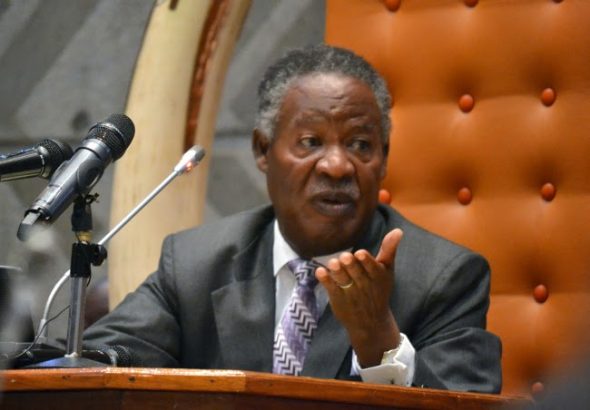
The Lumwana Mine is an open-cut copper mine project in the North West province of Zambia. Image courtesy of BGStock72/shutterstock.
Zambia must prioritise domestic revenue mobilisation which requires a concerted effort to increase tax compliance, enhance enforcement, and widen the tax base.
Lusaka, June 14 – According to economists at the International Growth Centre (IGC), Zambia needs to improve tax collection and ensure the mining industry operates for the overall benefit of the economy to achieve sustainable debt levels.
The roots of Zambia’s need for debt restructuring lie in low tax collection, as the only alternative for the government to bridge the budget deficit is borrowing, says Twivwe Siwale, an IGC economist and a former tax inspector in Zambia.
Also Read: Botswana threatens break-up with De Beers.
The IGC is carrying out research on tax for the Zambian government to use in formulating policy. There is often a temptation to focus on symptoms and not causes when addressing development challenges, especially for challenges like unsustainable debt which stem from a variety of causes. In this article, the IGC explores one of the reasons why countries like Zambia repeatedly find themselves in debt – a limited ability to collect tax.
Also Read: Sinkamba calls for a thorough investigation of the ZCCM-IH saga!
◾Debt increasing faster than tax revenue.
Debt when managed correctly is a legitimate avenue for financing development. Debt contraction can, however, quickly become uncontrolled and unsustainable, unleashing a vicious cycle where a country doesn’t collect enough tax and so it borrows to finance the gap. It then runs up its debt levels which result in increased borrowing costs as interest payments escalate and debt servicing increases as a proportion of the government’s budget.
The Zambia case is a typical illustration of this. Zambia is projected to spend 30% of its revenue on debt payments between 2022-2024.
Debt is ultimately repaid from tax revenues, but it is quicker to contract debt than to expand the tax base. This means debt tends increase at a faster pace than revenue mobilisation leading to a downward spiral. This is the very situation that Zambia finds itself in.
◾Better taxation is the long-term solution to the debt problem.
Zambia’s debt contraction has not increased growth and growing debt servicing costs have weakened the economy and in turn stifled tax revenue collection. This has left the country in a vicious cycle where it needs to borrow to finance economic development.
The long-term solution for avoiding debt traps it to adopt measures that reduce Zambia’s reliance on external borrowing. This includes adopting more fiscally prudent policies, such as controlling public spending and being parsimonious with government expenditure.
A better international framework governing the contracting of debt also needs to be developed. But to ultimately end the debt dependency, Zambia must prioritise domestic revenue mobilisation. This will require a concerted effort to increase tax compliance, enhance enforcement, and widen the tax base.
Zambia needs to improve tax collection and ensure the mining industry operates for the overall benefit of the economy to achieve sustainable debt levels.
Also Read: Chile to nationalize its vast lithium industry!
In a related development, Zambia’s creditors are close to agreeing to a long-awaited debt restructuring deal that will allow the International Monetary Fund to disburse $188 million.
“We’ve had initial agreements to provide financing assurances so the IMF can proceed with providing financing with Zambia,” Abebe Aemro Selassie, the fund’s director of the African Department, said during a panel at the Bloomberg New Economy Gateway Africa forum in Marrakesh, Morocco, on Tuesday.
Credit: Twivwe Siwale, Head of Tax for Growth Initiative, International Growth Centre.
You can now follow Woodpecker’s Digest on Twitter and Facebook!
©2022 Woodpecker’s Digest Inc.
Putting news into perspective








